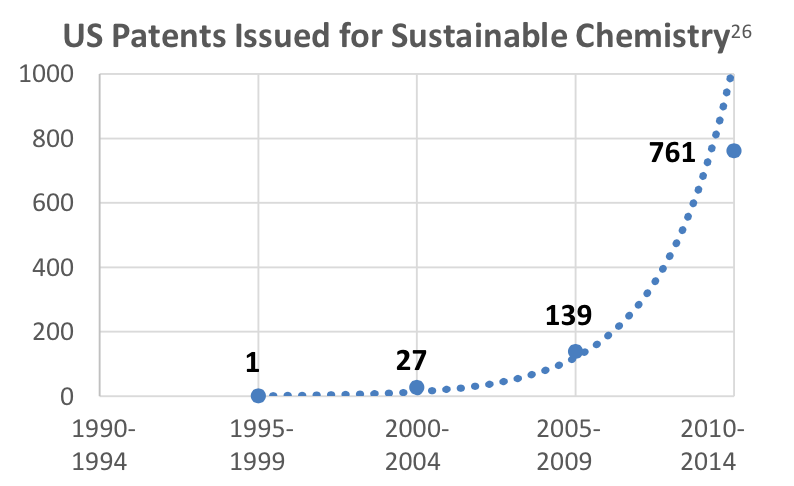Here is an interesting recent report from the American Sustainable Business Council (ASBC) and the Green Chemistry and Commerce Council (GC3) about “Making the Business & Economic Case for Safer Chemistry.” The report evaluates the potential business and economic value of “safer chemistry” – which can include reducing the use and generation of hazardous substances, reducing the human health and environmental impacts of processes and products, and creating safer products.
The research included interviews with 17 industry experts, as well as a review of literature and available data on the business and economic opportunities achievable through safer chemistry and the business and economic value at risk from not adopting safer chemistry.
The ASBC and GC3 are working to increase the practice of safer chemistry through programs and initiatives. ASBC and GC3 intend to use the research to communicate with a broad audience about the use of safer chemistry. For example, ASBC and GC3 follow-on activities could include making the business case to companies about the benefits of safer chemicals in their products, making the case to government or NGOs for better policy or market-based approaches that drive adoption of safer chemicals, or making the case to investors to direct the flow of capital towards more sustainable business models or new technologies.
Among the findings in the report are:
• The market for safer chemicals is estimated to have 24 times the growth of conventional chemicals market worldwide, from 2011 to 2020.
• A growing market demand for safer ingredients across various products, including personal care, cleaning products, baby products, apparel and footwear, healthcare, electronics, building materials and furnishings
• Potential financial costs of conventional chemistry, including regulatory fines, loss of access to markets, and social costs of accidents and incidents are driving the market for safer alternatives.
• Job growth in safer goods and services is well ahead of conventional chemical industry.
By the way, I discovered this report via the BRAG blog. BRAG stands for the Biobased and Renewable Products Advocacy Group, which aims to help members develop and bring to market their innovative biobased and renewable chemical products through insightful policy and regulatory advocacy. BRAG is managed by B&C Consortia Management LLC, an affiliate of Bergeson & Campbell P.C.




